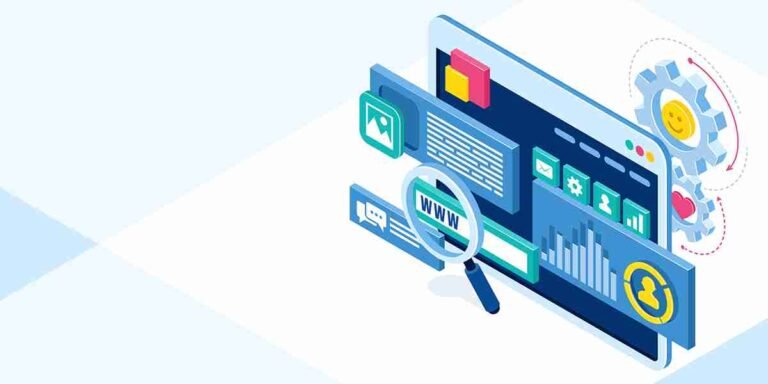The Impact of Web Portals on Education and E-Learning Platforms

Web portals have revolutionized the way education and e-learning platforms deliver content and interact with students. By providing a centralized, user-friendly interface for accessing learning materials, managing assignments, and engaging with instructors, web portals have become essential tools in modern education. This article explores how web portals are reshaping the education sector and enhancing the e-learning experience for students, educators, and institutions alike.
The integration of web portals into education and e-learning platforms has dramatically transformed the way students, instructors, and administrators engage with learning materials and each other. These portals serve as a comprehensive hub, providing easy access to a wide range of educational resources, such as course materials, videos, discussion forums, assignments, and grades.
Benefits of Web Portals in Education:
- Centralized Learning Experience: Web portals consolidate all relevant resources in one location, streamlining the learning process for students and ensuring that they have immediate access to what they need.
- Real-Time Communication and Collaboration: Instructors and students can engage in real-time discussions through integrated messaging systems or forums, encouraging collaboration and enhancing the learning experience.
- Personalized Learning Paths: E-learning platforms can leverage data to provide personalized content and assessments tailored to the needs and progress of individual students, improving learning outcomes.
- Access to Diverse Learning Materials: Web portals allow students to access a variety of resources—such as e-books, video tutorials, and quizzes—anytime, anywhere, fostering flexible and self-paced learning.
- Streamlined Administration: Institutions can manage courses, track student progress, and handle scheduling and grading all within a single system, making administration more efficient.
Key Features of Web Portals for E-Learning:
- Course Management Systems (CMS): Facilitates the creation, management, and delivery of online courses, including uploading lectures, assignments, and quizzes.
- Student Portfolios: Students can maintain a digital portfolio of their work, track progress, and share achievements with instructors and peers.
- Mobile Accessibility: With mobile-responsive design, students can access their course materials and interact with peers and instructors on any device, increasing convenience and engagement.
- Interactive Tools: Features such as video conferencing, chatrooms, and virtual classrooms foster real-time interaction, enhancing the social aspect of learning.
- Assessment and Grading Systems: Automated quizzes, exams, and assignment grading systems ensure timely feedback and help educators efficiently track student performance.
The Future of Web Portals in Education: The future of web portals in education is promising, with continuous advancements in artificial intelligence, machine learning, and immersive technologies. AI can be used to personalize content, predict learning outcomes, and provide targeted interventions to students who may need extra support. Virtual and augmented reality tools are increasingly being integrated into e-learning platforms, offering immersive, interactive learning experiences.
Additionally, as the demand for online learning grows, the scalability of web portals becomes crucial. Modern web portals are designed to handle high traffic, ensuring that both students and educators have smooth access, even during peak usage times.
Security Considerations: As web portals store sensitive student data, security is a top priority. Features like secure authentication, data encryption, and regular audits are essential to protect against unauthorized access and data breaches.
In conclusion, web portals are revolutionizing the education and e-learning sectors by improving accessibility, fostering communication, and enhancing the overall learning experience. With continuous innovations and better integration of emerging technologies, web portals will continue to shape the future of education.














